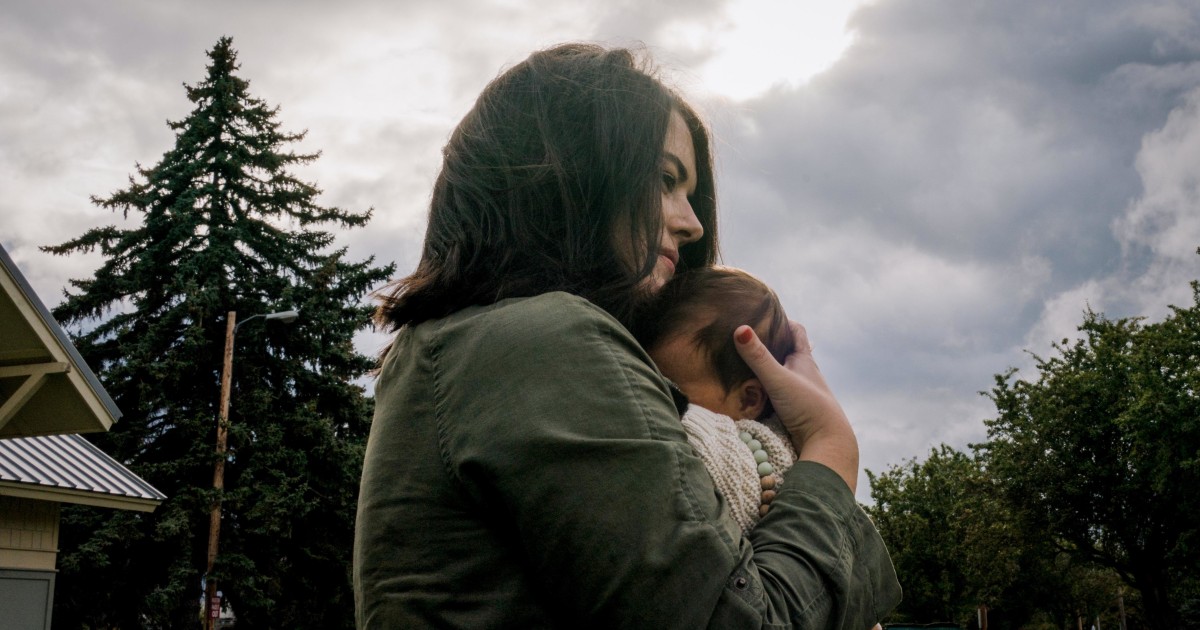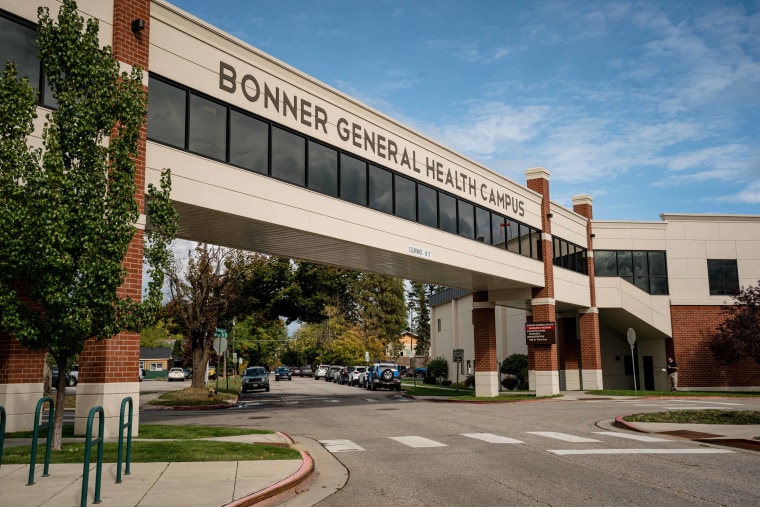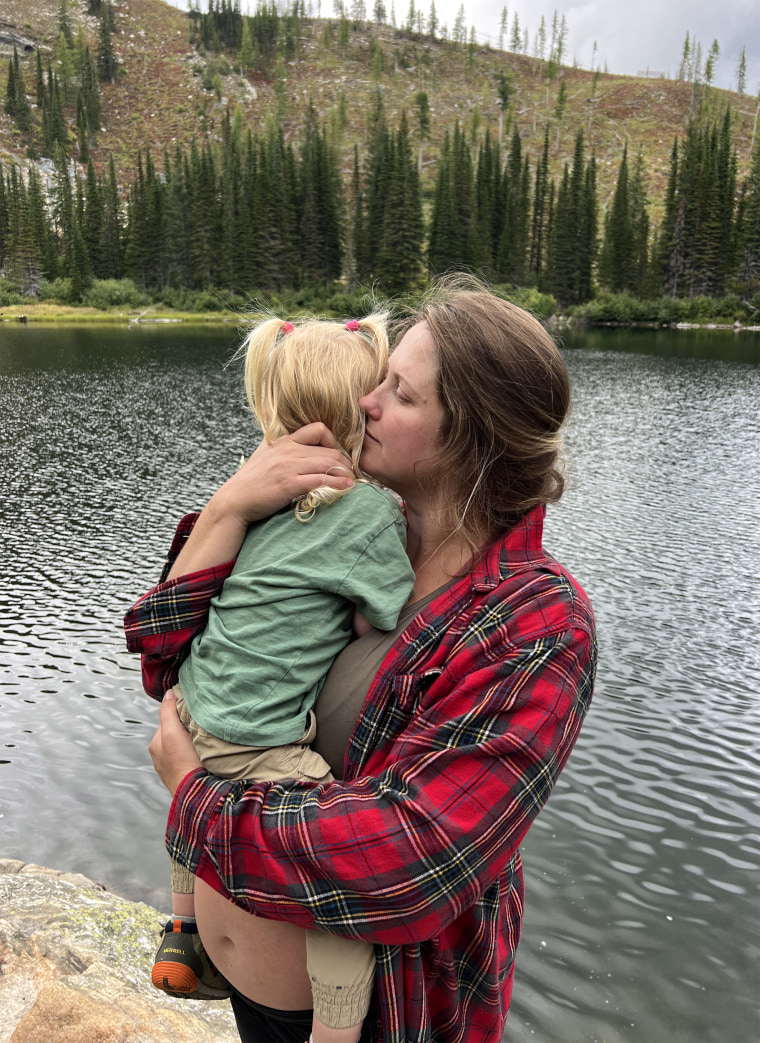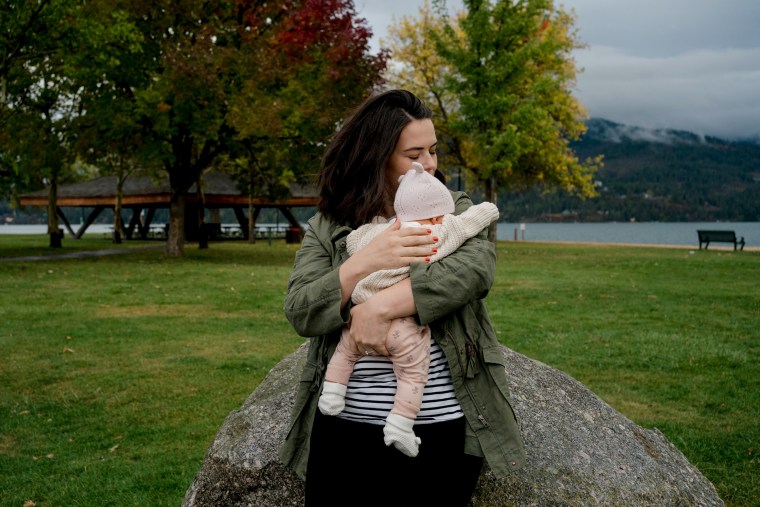McCALL, Idaho — One by one, doctors who handle high-risk pregnancies are disappearing from Idaho — part of a wave of obstetricians fleeing restrictive abortion laws and a hostile state legislature. Dr. Caitlin Gustafson, a family doctor who also delivers babies in the tiny mountain town of...

www.yahoo.com

As Abortion Laws Drive Obstetricians From Red States, Maternity Care Suffers
Sheryl Gay Stolberg
Wed, September 6, 2023 at 7:27 AM EDT·9 min read
1.7k
“I wanted to work in a small family town and deliver babies,” Dr. Caitlin Gustafson said. “I was living my dream — until all of this.”
McCALL, Idaho — One by one, doctors who handle high-risk pregnancies are disappearing from Idaho — part of a wave of obstetricians fleeing restrictive abortion laws and a hostile state legislature. Dr. Caitlin Gustafson, a family doctor who also delivers babies in the tiny mountain town of McCall, is among those left behind, facing a lonely and uncertain future.
When caring for patients with pregnancy complications, Gustafson seeks counsel from maternal-fetal medicine specialists in Boise, the state capital two hours away. But two of the experts she relied on as backup have packed up their young families and moved away, one to Minnesota and the other to Colorado.
All told, more than a dozen labor and delivery doctors — including five of Idaho’s nine longtime maternal-fetal experts — will have either left or retired by the end of this year. Gustafson said the departures have made a bad situation worse, depriving both patients and doctors of moral support and medical advice.
Sign up for The Morning newsletter from the New York Times
“I wanted to work in a small family town and deliver babies,” she said. “I was living my dream — until all of this.”
Idaho’s obstetrics exodus is not happening in isolation. Across the country, in red states like Texas, Oklahoma and Tennessee, obstetricians — including highly skilled doctors who specialize in handling complex and risky pregnancies — are leaving their practices. Some newly minted doctors are avoiding states like Idaho.
The departures may result in new maternity care deserts, or areas that lack any maternity care, and they are placing strains on physicians such as Gustafson who are left behind. The effects are particularly pronounced in rural areas, where many hospitals are shuttering obstetrics units for economic reasons. Restrictive abortion laws, experts say, are making that problem much worse.
“This isn’t an issue about abortion,” said Dr. Stella Dantas, the president-elect of the American College of Obstetricians and Gynecologists. “This is an issue about access to comprehensive obstetric and gynecologic care. When you restrict access to care that is based in science, that everybody should have access to — that has a ripple effect.”
Idaho doctors operate under a web of abortion laws, including a 2020 “trigger law” that went into effect after the Supreme Court eliminated the constitutional right to abortion by overturning Roe v. Wade last year. Together, they create one of the strictest abortion bans in the nation. Doctors who primarily provide abortion care are not the only medical professionals affected; the laws are also impinging on doctors whose primary work is to care for expectant mothers and babies, and who may be called upon to terminate a pregnancy for complications or other reasons.
Idaho bars abortion at any point in a pregnancy with just two exceptions: when it is necessary to save the life of the mother and in certain cases of rape or incest, though the victim must provide a police report. A temporary order issued by a federal judge also permits abortion in some circumstances when a woman’s health is at risk. Doctors convicted of violating the ban face two to five years in prison.
Gustafson, 51, has so far decided to stick it out in Idaho. She has been practicing in the state for 20 years, 17 of them in McCall, a stunning lakeside town of about 3,700 people.
She sees patients at the Payette Lakes Medical Clinic, a low-slung building that evokes the feeling of a mountain lodge, tucked into a grove of tall spruces and pines. It is affiliated with St. Luke’s Health System, the largest health system in the state.
On a recent morning, she was awakened at 5 a.m. by a call from a hospital nurse. A pregnant woman, two months shy of her due date, had a ruptured membrane. In common parlance, the patient’s water had broken, putting the mother and baby at risk for preterm delivery and other complications.
Gustafson threw on her light blue scrubs and her pink Crocs and rushed to the hospital to arrange for a helicopter to take the woman to Boise. She called the maternal-fetal specialty practice at St. Luke’s Boise Medical Center, the group she has worked with for years. She did not know the doctor who was to receive the patient. He had been in Idaho for only one week.
“Welcome to Idaho,” she told him.
In rural states, strong medical networks are critical to patients’ well-being. Doctors are not interchangeable widgets; they build up experience and a comfort level in working with one another and within their health care systems. Ordinarily, Gustafson might have found herself talking to Dr. Kylie Cooper or Dr. Lauren Miller on that day.
But Cooper left St. Luke’s in April for Minnesota. After “many agonizing months of discussion,” she said, she concluded that “the risk was too big for me and my family.”
Miller, who had founded the Idaho Coalition for Safe Reproductive Health Care, an advocacy group, moved to Colorado. It is one thing to pay for medical malpractice insurance, she said, but quite another to worry about criminal prosecution.
“I was always one of those people who had been super calm in emergencies,” Miller said. “But I was finding that I felt very anxious being on the labor unit, just not knowing if somebody else was going to second-guess my decision. That’s not how you want to go to work every day.”
The vacancies have been tough to fill. Dr. James Souza, the chief physician executive for St. Luke’s Health System, said the state’s laws had “had a profound chilling effect on recruitment and retention.” He is relying in part on temporary, roving doctors known as locums — short for the Latin phrase locum tenens, which means to stand in place of.
He likens labor and delivery care to a pyramid, supported by nurses, midwives and doctors, with maternal-fetal specialists at its apex. He worries the system will collapse.
“The loss of the top of a clinical pyramid means the pyramid falls apart,” Souza said.
Some smaller hospitals in Idaho have been unable to withstand the strain. Two closed their labor and delivery units this year; one of them, Bonner General Health, a 25-bed hospital in Sandpoint, in northern Idaho, cited the state’s “legal and political climate” and the departure of “highly respected, talented physicians” as factors that contributed to its decision.
Other states are also seeing obstetricians leave. In Oklahoma, where more than half of the state’s counties are considered maternity care deserts, three-quarters of obstetrician-gynecologists who responded to a recent survey said they were either planning to leave, considering leaving or would leave if they could, said Dr. Angela Hawkins, the chair of the Oklahoma section of the American College of Obstetricians and Gynecologists.
The previous chair, Dr. Kate Arnold, and her wife, also an obstetrician, moved to Washington, D.C., after the Supreme Court overturned Roe in Dobbs v. Jackson Women’s Health Organization. “Before the change in political climate, we had no plans on leaving,” Arnold said.
In Tennessee, where one-third of counties are considered maternity care deserts, Dr. Leilah Zahedi-Spung, a maternal-fetal specialist, decided to move to Colorado not long after the Dobbs ruling. She grew up in the South and felt guilty about leaving, she said.
Tennessee’s abortion ban, which was softened slightly this year, initially required an “affirmative defense,” meaning that doctors faced the burden of proving that an abortion they had performed was medically necessary — akin to the way a defendant in a homicide case might have to prove he or she acted in self-defense. Zahedi-Spung felt as if she had “quite the target on my back,” she said — so much so that she hired her own criminal defense lawyer.
“The majority of patients who came to me had highly wanted, highly desired pregnancies,” she said. “They had names, they had baby showers, they had nurseries. And I told them something awful about their pregnancy that made sure they were never going to take home that child — or that they would be sacrificing their lives to do that. I sent everybody out of state. I was unwilling to put myself at risk.”
Perhaps nowhere has the departure of obstetricians been as pronounced as in Idaho, where Gustafson has been helping to lead an organized — but only minimally successful — effort to change the state’s abortion laws, which have convinced her that state legislators do not care what doctors think. “Many of us feel like our opinion is being discounted,” she said.
Gustafson worked one day a month at a Planned Parenthood clinic in a Boise suburb until Idaho imposed its near-total abortion ban; she now has a similar arrangement with Planned Parenthood in Oregon, where some Idahoans travel for abortion care. She has been a plaintiff in several lawsuits challenging Idaho’s abortion policies. Earlier this year, she spoke at an abortion rights rally in front of the state Capitol.
In interviews, two Republican state lawmakers — Reps. Megan Blanksma, the House majority leader, and John Vander Woude, the chair of the House Health and Welfare Committee — said they were trying to address doctors’ concerns. Vander Woude acknowledged that Idaho’s trigger law, written before Roe fell, had affected everyday medical practice in a way that lawmakers had not anticipated.
“We never looked that close, and what exactly that bill said and how it was written and language that was in it,” he said. “We did that thinking Roe v. Wade was never going to get overturned. And then when it got overturned, we said, ‘OK, now we have to take a really close look at the definitions.’”
Vander Woude also dismissed doctors’ fears that they would be prosecuted, and he expressed doubt that obstetricians were really leaving the state. “I don’t see any doctor ever getting prosecuted,” he said, adding, “Show me the doctors that have left.”
During its 2023 session, the Legislature clarified that terminating an ectopic pregnancy or a molar pregnancy, a rare complication, would not be defined as abortion — a move that codified an Idaho Supreme Court ruling. Lawmakers also eliminated an affirmative defense provision.
But lawmakers refused to extend the tenure of the state’s Maternal Mortality Review Committee, an expert panel on which Gustafson served that investigated pregnancy-related deaths. The Idaho Freedom Foundation, a conservative group, testified against it and later called it an “unnecessary waste of tax dollars” — even though the annual cost, about $15,000, was picked up by the federal government.
That was a bridge too far for Dr. Amelia Huntsberger, the Idaho obstetrician who helped lead a push to create the panel in 2019. She recently moved to Oregon. “Idaho calls itself a quote, ‘pro-life state,’ but the Idaho Legislature doesn’t care about the death of moms,” she said.
Most significantly, the Legislature rejected a top priority of Gustafson and others in her field: amending state law so that doctors would be able to perform abortions when the health — not just the life — of the mother is at risk. It was almost too much for Gustafson. She loves living in Idaho, she said. But when asked if she had thought about leaving, her answer was quick: “Every day.”
c.2023 The New York Times Company








